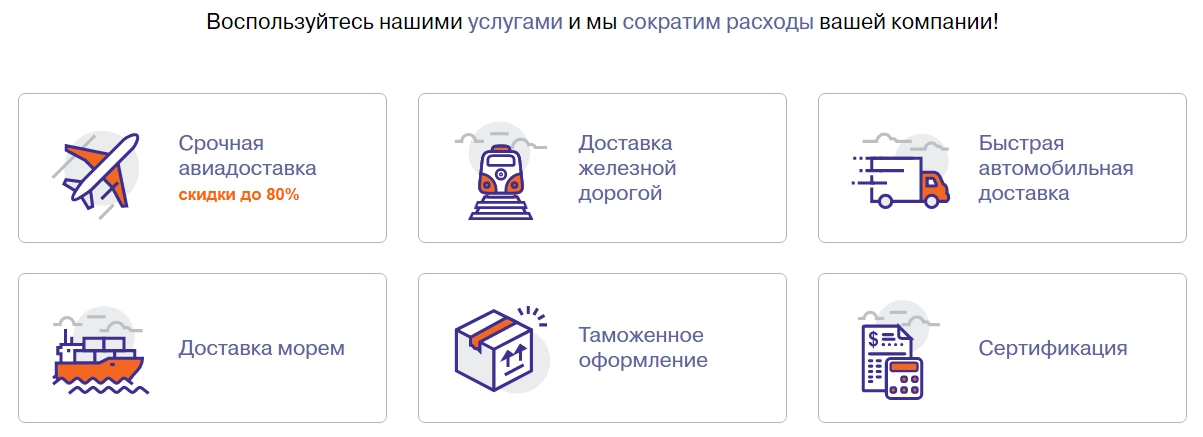How Automated Solutions are Reshaping Goods Logistics
How Automated Solutions are Reshaping Goods Logistics
Blog Article
The distribution field, particularly cargo shipping, is undergoing a remarkable shift, propelled by the constant advancement of self-operating solutions. As businesses vie for efficiency and rapidity in delivery methods, automation stands at the forefront of this revolution, redefining how goods move across the international markets. From AI-powered transporters to advanced monitoring mechanisms, the evolution of this field is palpable, offering significant upgrades in velocity, trustworthiness, and economic viability.
Revolutionizing Productivity with AI-powered Systems
At the heart of this technological wave is the implementation of automation in shipment transport frameworks. Traditional techniques often failed under the burden of inefficiency and operator inaccuracies. However, modern automated solutions deliver advanced solutions that optimize operations.
One significant breakthrough is in the realm of aviation-based shipping, where AI-powered systems aids in coordinating intricate logistical operations that involve route optimization and air navigation regulation. This not only accelerates the process but also bolsters safety by eliminating potential manual misjudgments.
Improved monitoring capabilities are another benefit. Modern technology facilitates for live monitoring of deliveries, which ensures businesses and customers aware about the whereabouts of their goods at all times. This clarity is essential in cultivating confidence and reliability in freight transport operations.
Minimizing Costs and Streamlining Customs
Automation expands into the detailed workflows of customs authorization, historically a hindrance for cargo movement due to its multifaceted protocols and potential setbacks.
Contemporary automated technologies enhanced with Big Data technologies can swiftly evaluate massive datasets of records and validate alignment with government policies more rapidly than previously. This minimization in workflow delays lowers on administrative expenditures dramatically, showcasing a direct financial advantage that companies can capitalize on.
Transforming Logistics with AI-driven Insights
Additionally, the utilization of Big Data reinvents the strategy toward supply chain management and border clearance. By processing past information and up-to-date trends, automated frameworks anticipate bottlenecks and enhance workflows to be more consistent and seamless.
Businesses observing real-time information can make well-calculated strategies that inherently reduce risks associated with customs delays.
Sustainability Aspect
AI-driven systems also support positively to environmental sustainability in shipment movement. More precise and well-planned path calculation lowers avoidable resource expenditure and cuts down carbon.
Self-driving fleet vehicles are increasingly aligned with eco-friendly energy sources and electric propulsion, synchronizing cargo distribution activities with broader eco-conscious targets.
Boosting End-User Satisfaction
The self-operating innovation optimizes not just cargo handling streamlining but also consumer experience. The capability to monitor deliveries in instantaneously, experience minimized hold-ups, and appreciate reduced fees transforms customer interaction greatly.
Fast, transparent, and efficient shipping systems are more expected to build loyalty and ongoing business, showing that modern innovation is vital in present cargo shipping operations.
Additionally, as machines manage repetitive duties more seamlessly, businesses can redirect employee capital to sectors needing problem-solving and planning, thereby enhancing customer excellence overall.
Looking Ahead: The AI-Driven Landscape
The groundbreaking influence of automation in freight delivery promises an promising era for logistics. As businesses proceed to utilize these solutions, they enhance their market position by providing quicker, more secure, and more economical shipping approaches.
Sustainability advancements further broaden the appeal of automated systems, aligning industry practices with eco-friendly initiatives.
A Progressive Phase in Logistics Transport
In summary, the implementation of AI-driven solutions in cargo logistics introduces a vast array of opportunities focused on transforming shipping not only faster but also more reliable and less costly.
The tactical use of data-driven insights in streamlining border clearance processes further highlights the efficiency of automated frameworks in revolutionizing traditional logistics industries.
AI Integration: The Future of Logistics Shipping
Cargo movement is transitioning confidently into a modern age dictated by automation—a testament to mankind’s continuous drive of progress.
With ever-evolving breakthroughs, the capability to redefine global trade patterns persists, marking an optimistic pathway towards an streamlined and optimized future in logistics shipping.
Check out about tamozhennoe oformlenie just go to our new internet page.